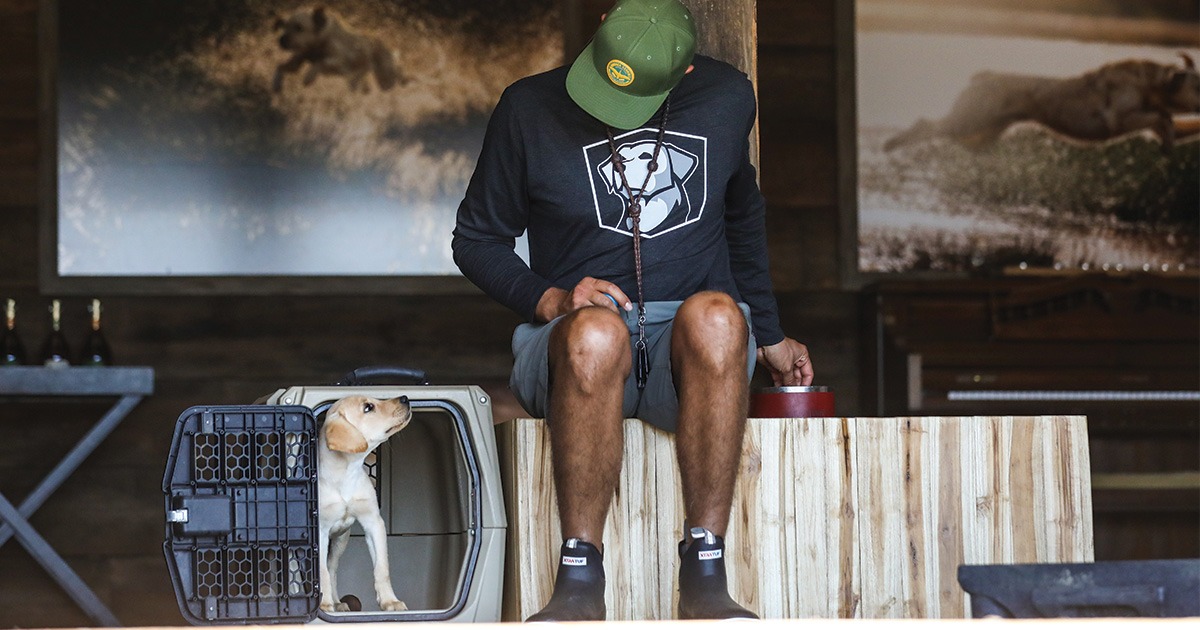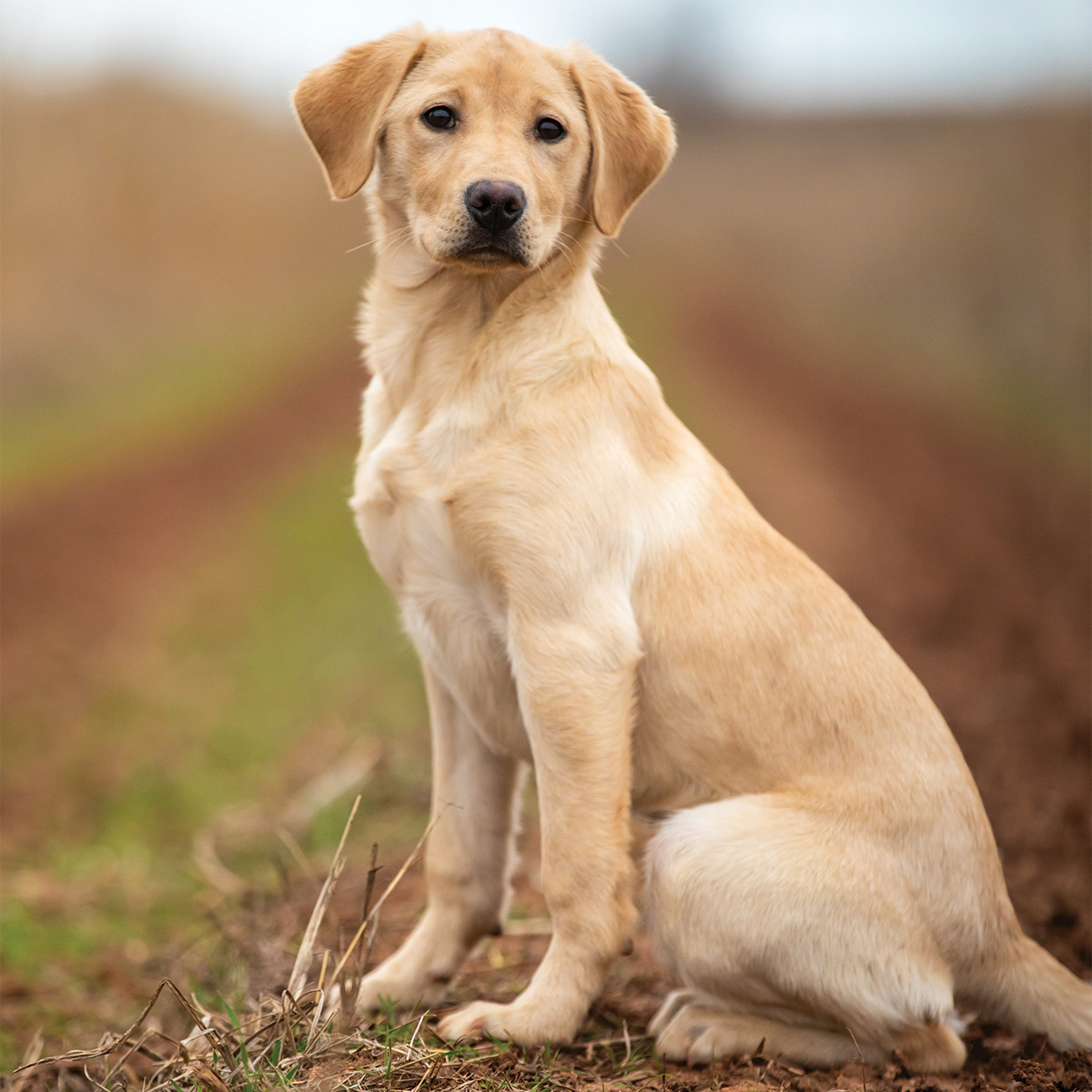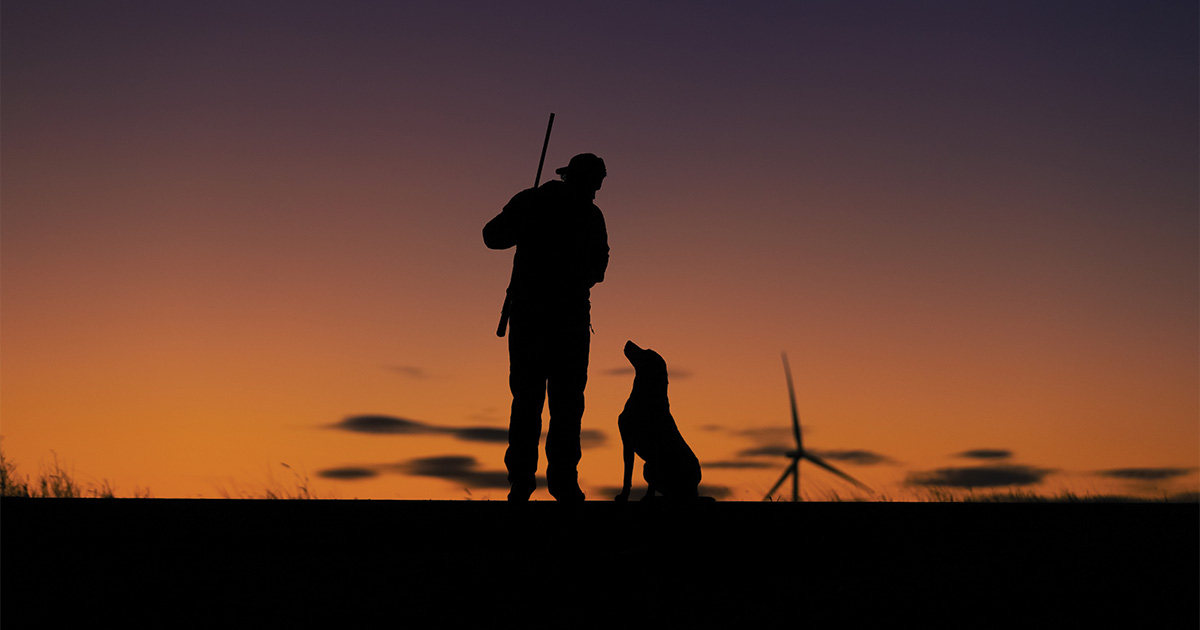When a Retriever is Too Young to Hunt: What Now?
Overlooked tips that will set you ahead for next season
Overlooked tips that will set you ahead for next season
By Nathan Ratchford

The scenario is familiar to many hunters. The timing of a litter wasn’t just right and you’ve got a young retriever, eager and full of potential, but they are not quite ready for the demands of a real hunt. Hunting too soon can be detrimental, but leaving the dog at home often isn’t the right call, either.
So, what can you do this hunting season to set your puppy up for even greater success next year? Barton Ramsey, founder of Southern Oak Kennels, offers practical advice for navigating this tricky situation.
For young dogs, exposure is key. Ramsey advises bringing your puppy along on hunting trips, but only under safe and controlled conditions. “Having them safely crated during the hunt is always the best option,” he says. This keeps your dog protected while allowing them to absorb the sights, sounds, and smells of the hunt in a more controlled manner.
Ramsey emphasizes that exposure doesn’t need to be limited to the actual hunt. “There are so many things in the field that are hard to replicate in a training scenario,” he says. Activities like setting up decoys or brushing blinds can be invaluable experiences for a young dog. “I’ll often let my younger dogs watch as we set up a goose spread. It can be a little overwhelming at first, but it’s great exposure for a young dog learning the ropes.”

Socialization is a cornerstone of any young retriever’s development. Introducing your dog to all of the elements of a hunt—decoys, calls, and other dogs—will help minimize the “newness” when they’re finally ready for the full experience.
“I want them to think of hunting as a fun, normal activity,” Ramsey says. “When they encounter those elements on a real hunt, it shouldn’t feel like a big deal.”
Hunting camps provide a perfect setting for this kind of exposure. Ramsey encourages owners to let their dogs spend time around the campfire, observing the comings and goings of people and other dogs. “It doesn’t cost much to put your dog on a slip lead and have them sit next to you while you relax by the fire,” he notes. “At first, they might be keyed up, but eventually, they’ll settle down and learn to just hang out. That’s a big moment of change for a young dog.”
After the hunt is another excellent time to work with your dog. If you’re on private land or near your camp, Ramsey recommends throwing a few dead birds or bumpers into the decoys and running the dog through simple retrieves. This helps them connect the dots between the training and the hunting environment and will put them ahead for next year.
“Use the same setups you’d have on a real hunt—whether it’s a pit blind, boat or layouts,” he advises. “It’s a great way to make the hunting environment familiar and fun for them.”

Ramsey warns against using older, experienced dogs as “teachers” for young retrievers. “Dogs don’t learn good behaviors by watching other dogs,” he explains. “They’re more likely to mimic bad behaviors or develop anxiety if they’re not properly prepared.”
If you’re asking a young dog to sit steady while an older dog retrieves, Ramsey suggests building in a reward for the younger dog. “Throw them a bird afterward to reinforce that sitting still is a good thing,” he says. “Otherwise, they may just feel punished.”
One of the most common questions Ramsey hears is how to actually determine when a dog is ready to hunt. He suggests creating a checklist of everything your dog will experience on a hunt and ensuring they’ve been prepared for each and every scenario.
“Has your dog been around multiple shotgun blasts? Have they worked in water with decoys? Heard calls? Picked up live birds?” Ramsey asks. “If you can’t check those boxes, your dog isn’t ready yet—and that’s okay.”
Rushing a young dog into hunting before they’re ready can lead to long-term issues, such as gun shyness, anxiety, or breaking. “An ounce of prevention is worth a pound of cure,” Ramsey says. “It’s better to wait and get it right than to risk getting it wrong.”
If your young dog isn’t ready to hunt, Ramsey recommends reframing your perspective. “This isn’t a lost season,” he says. “It’s an investment in your dog’s hunting career.”
By focusing on exposure, socialization, and controlled training, you’ll set your retriever up for success next year.
Ducks Unlimited uses cookies to enhance your browsing experience, optimize site functionality, analyze traffic, and deliver personalized advertising through third parties. By continuing to use this site, you agree to our use of cookies. View Privacy Policy